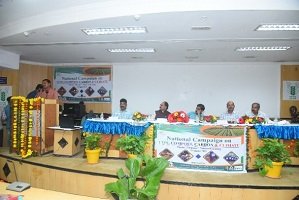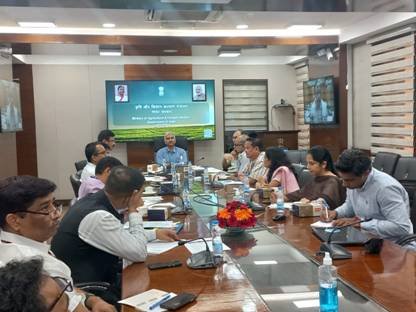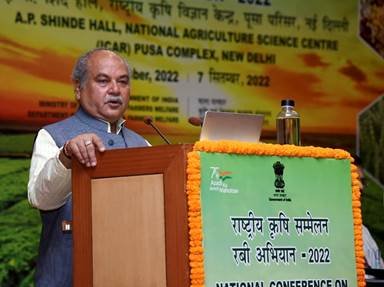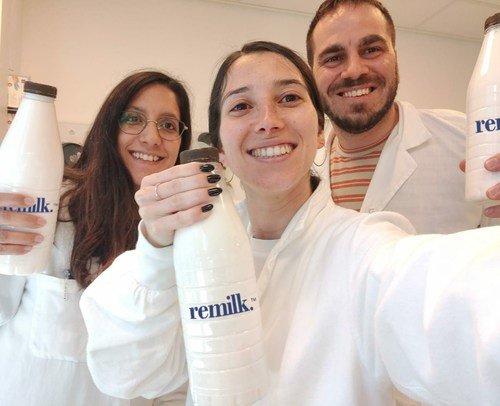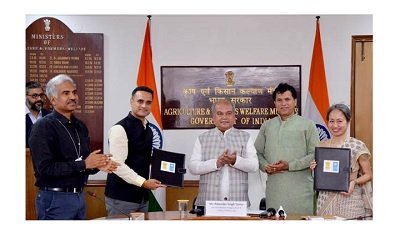The Agriculture Ministry had setup a specialised organisation ‘Mahalanobis National Crop Forecast Centre (MNCFC)’ in 2012 as an attached Office of Department of Agriculture & Farmers Welfare (DA&FW), focusing on enhancing satellite remote sensing and GIS technologies in crop estimation. Considering the recent advancements in the geospatial technology, DA&FW has recognised the need to scaleup the technology solutions in agriculture decision support.
In this direction, the first meeting of Technical Advisory Committee for strengthening and transforming MNCFC into a Centre of excellence in the field of geospatial technology applications, was held in New Delhi under the chairmanship of Manoj Ahuja, Secretary, DA&FW. Experts from ISRO Centres, International Rice Research Institute, National Institute of Advanced Studies and senior officials from DA&FW participated in the meeting.
Ahuja highlighted the need to scale up utilisation of satellites, drones, smart phones, AI/ML techniques to develop scientific information products and services for informed decision making by multiple stakeholders in the agriculture sector.
Dr Shailesh Naik Director National Institute of Advanced Studies, Bengaluru and former Secretary, Ministry of Earth Sciences, praised the current initiative of upgrading the MNCFC as a major technology hub and advised to take part in global initiatives on crop surveillance.
After deliberations, major recommendation of the committee included adoption of new technologies and data products, utilisation of recently launched Indian microwave satellite RISAT- 1 Adata, use of bio-physical products, better use of AI & ML techniques for automated crop mapping, crop health monitoring and crop yield estimation, collaborations with national, international, private and Start-up organisations. The Committee also discussed developing National framework at MNCFC for all scalable technology solutions to standardize the methodologies and to enable mainstreaming of these solutions into the decision-making processes. The major themes for developing such national initiatives include Crop surveillance and estimations, Disaster risk reduction in Agriculture, Farmer centric services – weather, pest/disease surveillance advisory, Nutrient management advisory and Agro-forestry decision support and Environment & Energy.
Additional Secretary, Abhilaksh Likhi, emphasised that satellite-based assessments be extended to Horticulture sector by pooling the data and expertise currently available in the existing projects and schemes in the Ministry and ICAR.
JS (Digital Agriculture), Pramod Kumar Meherda, expressed the hope that with the support of technology agencies like ISRO, MNCFC would be fully geared up to reap all possible benefits of digital technologies in a holistic manner in Agriculture sector.
The Agriculture Ministry had setup a specialised



